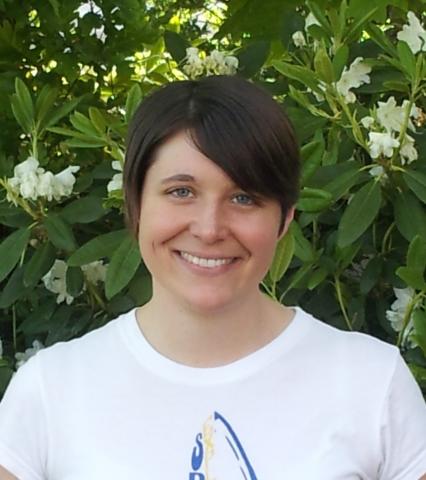Emily Caffrey is a member of a small niche of specialists that predict the fate and transport of radionuclides in the environment in order to help safeguard the health of future generations.
This is just one area where she is having an impact. As a consultant with South Carolina-based Risk Assessment Corporation (RAC) and president of her own company, Radian Scientific, Caffrey performs radiation-dose reconstructions for numerous projects sponsored by government and industry clients.
“Many of these projects are historic, dating back to the Manhattan Project era,” Caffrey said. “A lot of that material was left behind, and we need to reconstruct the radiation doses people received to determine the likelihood of adverse health effects.”
Another facet of her business is working with industry clients that run low-level radioactive waste sites to determine if the sites will be safe thousands of years into the future. In addition to providing radiation-dose projections, she helps clients obtain necessary regulatory approvals.
Caffrey is also an adjunct professor at two universities: Oregon State University and the University of Alabama- Birmingham (UAB).
When she and her husband, Jarvis – also a Beaver – moved to Alabama in 2016 for his dream job at NASA, Caffrey learned that UAB was starting a new health physics program. She is helping them build that program through teaching classes, mentoring students and helping them secure internships.
“The draw for me, to the university, is mentoring students,” she said. “My own mentors at Oregon State had such a big impact on my life and I want to pay that forward.”
As an adjunct professor for Oregon State, Caffrey is helping develop two classes for the radiation health physics online program, which was recently ranked ninth in the nation.
Caffrey also serves as president of the Alabama chapter of the Health Physics Society.
Article courtesy of Oregon State University and The Oregonian
